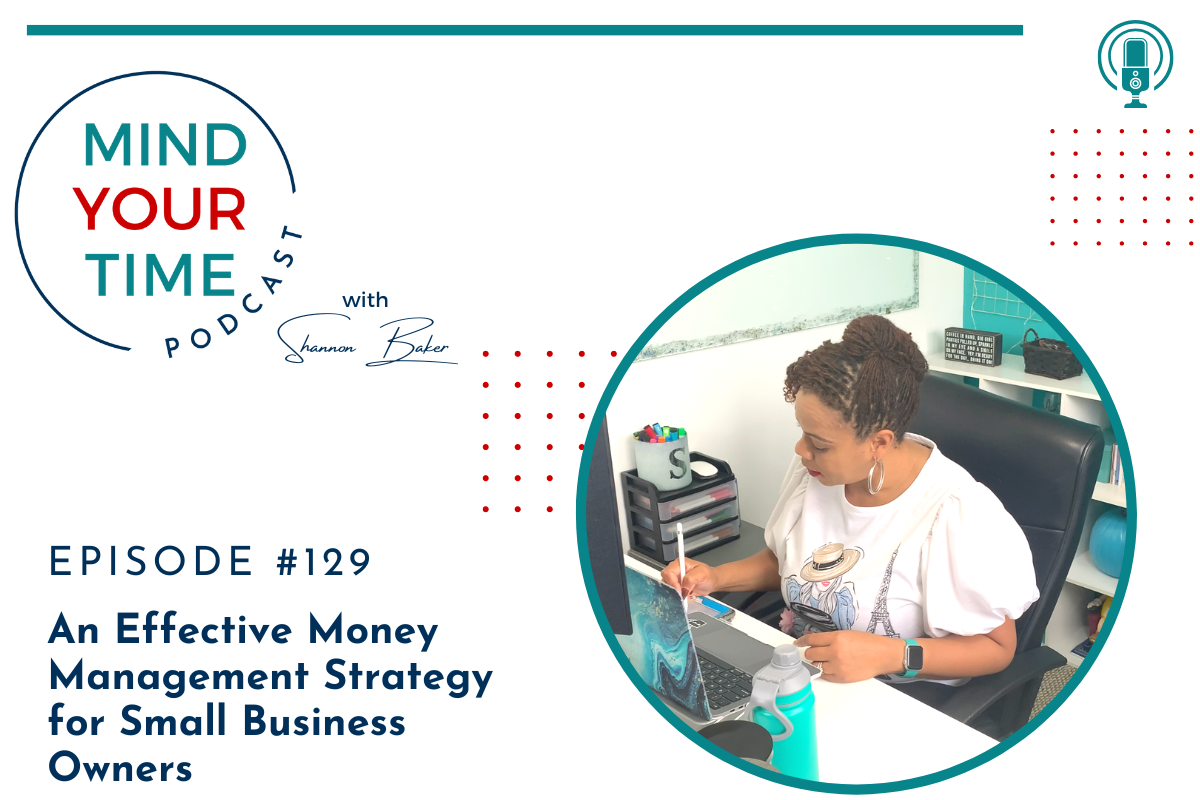As a business owner, it’s essential to have a clear picture of your finances to make informed decisions and avoid costly mistakes. However, many entrepreneurs struggle with bookkeeping and financial management, which can lead to stress, anxiety, and even failure.
Did you know that over 60% of small businesses fail within the first five years due to poor financial management?
But don’t worry, there’s a solution. Implementing a solid money management system can make a huge difference in your business’s success. In fact, studies have shown that small businesses with a formal money management system in place are 30% more likely to grow their revenue and stay in business in the long run.
Accurate financial information is crucial for you to make informed decisions about investments, expansion, or other strategic initiatives. Financial information includes details about your revenue, expenses, profits, cash flow, assets, liabilities, and other financial metrics. However, many entrepreneurs struggle with bookkeeping and financial management, which can lead to stress, anxiety, and even failure.
If you’re feeling overwhelmed or uncertain about your business finances, you’re not alone. Many business owners have fears and doubts about money. They are not knowing where their money is going. They’re not making enough money, or not financially secure enough to support their family.
But there is good news! You can overcome these fears and take control of your finances by creating one crucial but often overlooked system you need for success, a money management system. This system tracks both your business income and your business expenses.
Think of your business as a garden, and your money as the water that nourishes your plants. Without water, your garden will wither and die. Likewise, without proper management of your money, your business will not survive.
A money management system is a set of rules and procedures that help you manage your finances effectively. It involves setting financial goals, creating a budget, tracking your expenses, and making informed financial decisions. You can start by setting realistic financial goals and creating a budget that aligns with those goals.
For example, you might want to increase your revenue by a certain percentage or pay off a specific debt by a certain date. Having these goals in place can help you stay focused and motivated. It can also help you make better decisions about how to allocate your resources.
But I understand that the idea of creating a money management system may seem daunting. You may not have the time, the expertise, or the desire to tackle this on your own. And that’s where I come in.
I specialize in helping female entrepreneurs like you integrate business success and personal fulfillment. I understand that you have a creative and intuitive mindset. And the logistical and administrative aspects of running your business may not be your strong suit. That’s why I offer a back office assessment. This is the first step in identifying the areas you need to streamline in your operations. Then your business can support the growth you desire.
During the assessment, we’ll take a deep dive into your business and look at your financial systems. We will also look at your operations, and your overall business strategy. We’ll identify areas of inefficiency, potential cost savings, and opportunities for growth. And I’ll develop a customized plan that fits your unique needs and goals. If you want to know more about what happens during a back office assessment, check out this blog post. I walk you through the entire process including what happens when you book until you get your custom action plan.
Why You Need a Money Management Strategy
You are very aware of the fact that you need to keep an eye on your money. Unfortunately, most business owners do not know their numbers. And because of that, many small businesses do not survive.
Do you worry that you’re not good with numbers?
Are you worried because you’re not making enough money to support your family?
Perhaps you’re concerned that you’re overspending or that you’re not investing your money wisely. These are all valid fears, but they don’t have to hold you back.
With a solid money management strategy, you can overcome these fears and achieve your business goals. And the great part about it is that it doesn’t have to be complicated and expensive.
Start with a simple spreadsheet that lists all your recurring and one-time expenses, along with their due dates, amounts, and payment methods. There is actually a business expenses spreadsheet template that many of the members of the MY-T Society membership use to start tracking their business expenses. It’s a great way to list them all in one place for reference.
For starters, you need to separate your business and personal finances to avoid confusion. You also need to ensure that you’re paying yourself a fair salary. This can also help you identify business expenses that you may be able to write off on your taxes. It’s essential to have a clear picture of your finances to make informed decisions and avoid costly mistakes.
When you know how much money you have coming in and going out, you can make smart decisions about how to allocate your resources. Without a good money management strategy, you may find yourself struggling to keep your business afloat, or worse, you could end up in debt.
Let me share a real-life experience with you. When I was working as a VA, one of my clients owned a catering business. In her first year, she made over $70k, but at the end of that year, her bank account did not reflect that type of balance, not even half of it. And as we started to work together, I identified the issue – she was missing a money management system. She had no idea what supplies were costing her, what her personnel costs were, or what her profit margin could be because nothing was being tracked.
Don’t let that be you!
Keep an Eye On Your Business Expenses
Let’s start by talking a bit more about your business expenses. Money going out includes recurring monthly expenses (subscriptions for tools we use in our systems), annual expenses that are recurring (professional memberships, tools, website fees), and one-time expenses (conferences, networking events, professional development). As I mentioned earlier, you can start by creating a spreadsheet with all of these items on it. Include the date it has to be paid or comes out of your account, the amount, and where you are paying it from. That way, if you have to change a credit card number, you can easily identify where that needs to be done.
We tend to forget things that are automatically deducted whether they’re charged to our credit card or automatically deducted from our accounts. But you need to track that to make sure that you are not double-paid or subscribed to things that you no longer need. And be sure to keep receipts and invoices organized. This can easily be done digitally. You can create a folder in your digital filing system for your receipts and upload them by month, category, or whatever way you would like so that you can find them when you need them. Then you can simply snap a photo of a paper receipt and upload it into that folder. And if it’s digital, you can just save it into the right folder.
Keep an Eye on Your Cash Flow
You also have to make sure to track your income accurately and consistently, whether you invoice clients or receive payments through a website or app. This will help you stay on top of your cash flow and identify any issues that need to be addressed right away.
As far as money coming in, whether you invoice or have paid appointments, you need to track that money as it comes in. I know this can be a bit tricky if everyone doesn’t pay you at the same time. This is also very important if you do monthly auto-billing. And you need to have a process for when payments are declined or when payments are late. This is also where your templates come into play.
When you track your income and your expenses, you have a cash flow statement. That way you can see exactly when money was coming in and going out. And this is very helpful for projecting your cash flow. When you have this bird’s eye view of your finances you can also plan out your marketing campaigns to create a surge in your income or to keep your income consistent when a contract ends. But if you don’t see it, you can’t be proactive.
You can see how all of the systems work hand in hand to help you operate more efficiently. Most importantly, you see how important it is to track your money if you want to achieve sustainable growth.
Hire a Professional
And finally, consider hiring a bookkeeper or accountant to help you manage your finances and provide valuable insights into your business performance. They can also help you navigate tax laws and regulations and avoid costly mistakes.
By implementing these tips and creating a money management strategy that works for you, you can reduce your stress and anxiety around money and focus on growing your business and enjoying time with your family. Now I know there are many fears that you may have about money.
Common Fears That Can Be Resolved With a Money Management Strategy
Fear of not making enough money: Do you ever worry that you won’t make enough money to support yourself and your family? This fear can lead to a focus on short-term profits instead of long-term growth.
Fear of failure: Sometimes we worry that our business will fail, leaving us with no income and potentially causing financial ruin. But nothing beats a failure but a try.
Fear of not knowing enough about finances: You may not have a strong background in financial management which can lead to feelings of insecurity and uncertainty about making financial decisions.
Fear of taking risks: You’re a risk taker already! You started your own business. But if you want your business to survive and thrive, you need to invest in your business and take the necessary steps to grow.
Fear of debt: I know you don’t want to take on debt to finance your business because you fear you won’t be able to pay it back or that it will harm your credit score. That’s why it is really important for you to have a bird’s eye view of your finances. A money management system will help you with that.
Now I know that creating systems may not be the most exciting part of running a business, but it’s definitely one of the most important. And if you’re still feeling uncertain or overwhelmed, consider booking a back office assessment with me.
This is the first step in identifying the areas that need to change to streamline your operations and build a strong foundation for your business. Whether you’re looking for more free time, more money, better operation management, or scaling up your business, a back office assessment can provide valuable insights and solutions to help you achieve your goals.
So don’t let fear or doubt hold you back from financial success and freedom. Take control of your money today and start to build the business and life of your dreams.
So let’s do a quick recap of what we talked about today…
* A money management system is a set of rules and procedures that help manage finances effectively, including setting financial goals, creating a budget, tracking expenses, and making informed financial decisions.
* A solid money management system can overcome fears of overspending, not making enough money, or not investing wisely.
* It is essential to separate business and personal finances, identify business expenses to write off on your taxes, and have a clear picture of finances.
* A money management strategy does not have to be complicated and expensive, and a simple spreadsheet can be used to track all recurring and one-time expenses as well as your incoming payments.
A strong money management system is the foundation of a successful small business. By implementing these tips and creating a money management system that works for you, you can reduce your stress and anxiety around money and focus on growing your business and enjoying time with your family.
Now if you still have questions you need answered, please DM me on Instagram @the_shannonbaker or send me an email so we can get them answered and get your assessment booked today. There is still time to get not only a money management system in place, but we can identify what else you need in place before summer so that you can take time off unplugged and not have to worry about anything falling through the cracks.
Now that we’ve talked about tracking your money, be sure to tune in next week when we talk about the dynamic duo that helps you make money, the sales and marketing system.
Links mentioned in this episode:
Episode 124 – How to Organize Your Small Business Starting with a Digital Filing System
Episode 127 – What is a Back Office Assessment
Check Out The MY-T Society Membership
Let’s connect online
Connect With Me On Instagram: @the_shannonbaker




